How to choose battery pack for your emergency lighting?
Emergency battery packs provide emergency lighting if a power failure occurs. Customers are always confused about battery selection and setting up emergency light solution. A vast majority of emergency backup power kits that we sell come with standard functions and specifications are rechargeable batteries. These rechargeable batteries fall into three categories (NiCd, NiMH, Lithium), and we are often asked to explain the difference and how to choose a suitable battery for emergency lights.
Here are the major differences between the three categories:
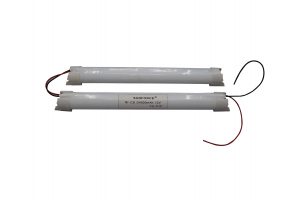
Nickel Cadmium (NiCd) Batteries are currently one of the most reliable and high safety chemistries in the market. NiCd batteries give more watt-hours of operation per shift as compared to other battery chemistries. They are ideal for a user who needs high-performance battery with high safety and long lifetime and for usage under extreme conditions of cold and heat (-20C to +50C)
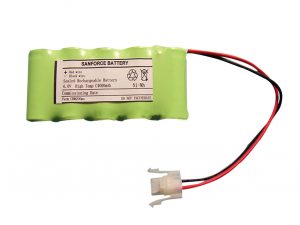
Nickel Metal Hydride (NiMH) Batteries offer shorter operation life with 500 cycles as compared to Nicd. These batteries provide 2 times more capacity than NiCd under same size, and operate as efficiently as Nicd in extreme temperatures. In addition, it is environmental friendly battery.
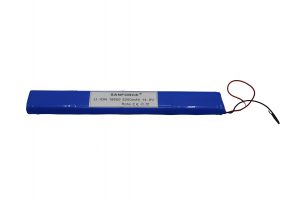
Lithium Ion (Li Ion) Batteries power to weight ratio exceeds that of NiMH for a lighter, smaller power supply. These batteries tend to be the industry’s most economical chemistry, and they offer good performance in extreme temperature.
Let’s give you a brief summary of advantages and disadvantage of various batteries:
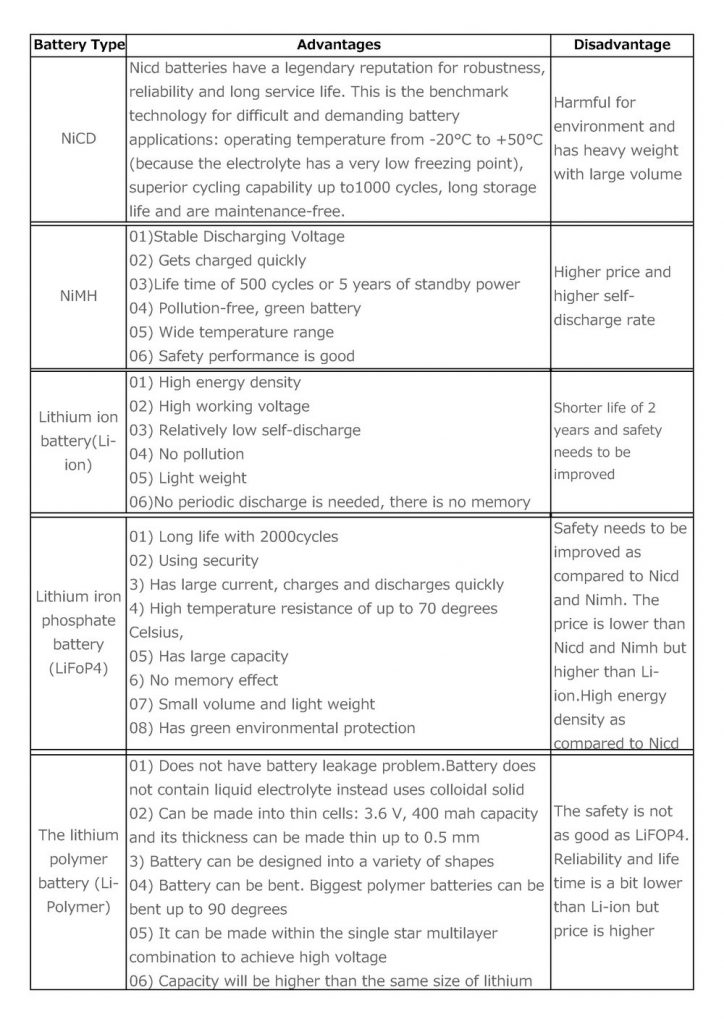
However, the charts below show a more visualized comparison for easy understanding:
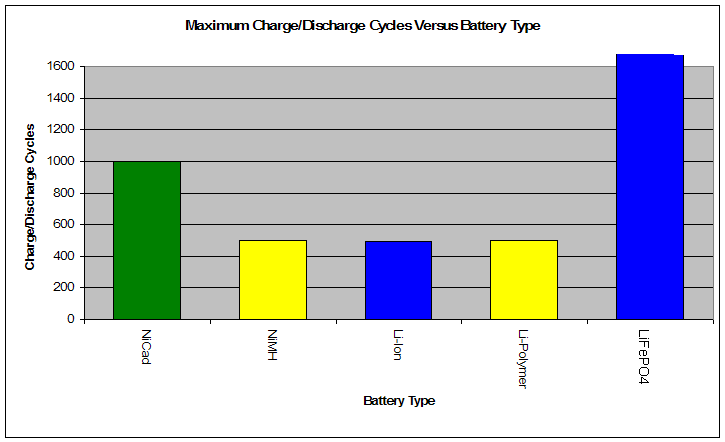
Self-Discharge Rate
Li-Ion and Li-Polymer batteries have a self-discharge rate of between 1-3% per month (when installed in a device, the self-discharge rate may be a little higher). If you look at one of the application notes from NAI AN Lighting they have the following table:

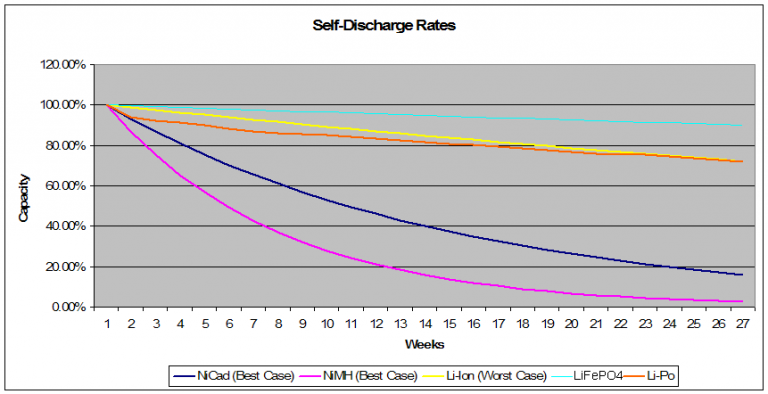
In conclusion, the type of battery to be selected depends on the preferences of the customers. Upon research on LinkedIn group talk, we analyzed the basic selection criteria of customers, which is as follows:
Some customers: “consider all possible technically adequate solutions, analyze discounted cash flow forecast over the expected lifetime of the installation and choose the financially optimum solution at the applicable time and assess maintenance and replacement cost.”
Others: “prefer lithium battery for good performance of temperature and lower price.”
Battery packs and power cells for LED emergency lighting systems
Emergency led batteries are the ideal power choice for emergency lighting and portable power applications. They are suitable for use in a wide range of industrial environment subject to hazardous atmospheres, dirt, dust or corrosive conditions. For specific use in emergency light fixtures, we offer specialized battery packs capable of withstanding high temperatures. You will find an overview of the most commonly used varieties of battery packs on Sanforce website. These battery packs can be supplied with universal connectors, allowing for seamless integration with the emergency light systems of various manufacturers. Other combinations and connectors for battery packs are available on request.
评论
发表评论